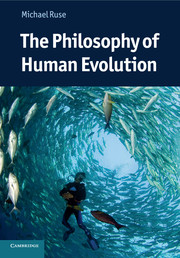8 - From eugenics to medicine
Published online by Cambridge University Press: 05 June 2012
Summary
In 1890, Alfred Russel Wallace, the co-discoverer of natural selection, wrote: “In one of my last conversations with Darwin he expressed himself very gloomily on the subject of the future of humanity, on the ground that in our modern civilization natural selection had no play, and the fittest did not survive. Those who succeed in the race for wealth are by no means the best or the most intelligent, and it is notorious that our population is more largely renewed in each generation from the lower than from the middle and upper classes” (Wallace 1900, I, 509; first published in the Fortnightly Review [1890]). This fits with what Darwin himself had written in the Descent of Man.
With savages, the weak in body or mind are soon eliminated; and those that survive commonly exhibit a vigorous state of health. We civilised men, on the other hand, do our utmost to check the process of elimination; we build asylums for the imbecile, the maimed, and the sick; we institute poor-laws; and our medical men exert their utmost skill to save the life of every one to the last moment. There is reason to believe that vaccination has preserved thousands, who from a weak constitution would formerly have succumbed to small-pox. Thus the weak members of civilised societies propagate their kind. No one who has attended to the breeding of domestic animals will doubt that this must be highly injurious to the race of man. It is surprising how soon a want of care, or care wrongly directed, leads to the degeneration of a domestic race; but excepting in the case of man himself, hardly any one is so ignorant as to allow his worst animals to breed. (C. Darwin 1871, I, 168)
Eugenics
Darwin was responding to scares started by his cousin Francis Galton (half-cousin, actually; they shared Erasmus Darwin as a grandfather), who in his recently published Hereditary Genius (1869) argued that intellectual ability was something transmitted by heredity from earlier generations rather than simply a matter of environment and education, and that it would be “quite practicable to produce a highly gifted race of men by judicious marriages during several consecutive generations” (Galton 1869, 1). We see now both the positive side and the negative side to what was to be labeled the science or hope of “eugenics” – on the one hand one can try to make for a better race of humans, and on the other hand one can try to prevent the decline of the present race of humans. Either way, one is using one’s knowledge of evolution and its processes to improve the state of humankind, individually or collectively. (Kevles 1985 is the definitive study of eugenics.)
- Type
- Chapter
- Information
- The Philosophy of Human Evolution , pp. 225 - 245Publisher: Cambridge University PressPrint publication year: 2012



